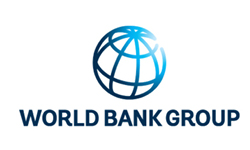Publications
Filter by
542 results found

This publication discusses financial viability support in the global landscape of infrastructure finance.



The World Economic Forum publishes a Financial Development Index annually, which measures and analyses the factors enabling the development of financial systems among different economies.


This paper provides reflections and considerations as to how MDBs including the IDB can use the Project Preparation Facilities (PPFs) to help countries fill the infrastructure gap by improving the quality of projects, reducing and mitigating risks, and leveraging private financing.




This analysis was drawn from the GI Hub's InfraCompass tool. and the case study reflects information on how the reform of land registration in the Malaysian state of Sarawak took place.

ndustry 4.0 can be characterized by the integration of autonomous robots and machinery and other smart technologies. It is a move toward smart technology in manufacturing with a focus on connectivity.


The study evaluates the market, business and financial aspects for the development of telecom broadband access for the EIB's Mediterranean Partner Countries.

The Financial Stability Board (FSB) have published a consultation report on the Evaluation of the effects of financial regulatory reforms on infrastructure finance.
The European PPP Expertise Centre's mission is to support the public sector across Europe in delivering better public-private partnerships (PPPs). It shares good practice, assists policy development, and supports PPP project preparation.

The European Commission's 'Guide to Cost-Benefit Analysis of Investment Projects' is a practical guide to major project appraisals.

The European Commission's Economic Appraisal Vademecum 2021-2027 - General Principles and Sector Applications aims to promote and simplify the use of Economic Appraisal (EA) for EU co-financed investments.

This publication illustartes the EIB's framework for assessing, managing and monitoring environmental and social impacts and risks associated with its operations.

This report leverages the experience of NGFS members and observers, as well as a survey of 25 central banks and 24 financial supervisors, to examine key challenges related to market transparency in green finance - particularly with regard to taxonomies; green external review and assessment; and climate transition metrics, frameworks, and market products. It also aims to inform a broad dialogue with market participants to find potential solutions to policy challenges.

The main objectives of this report are to share information within the World Bank and with its partners and client countries about the World Bank's activities to support open data efforts.

This document informs EIB s stakeholders - shareholders, borrowers, promoters, partners and civil society organisations - as well as the wider public.

The objective of the report and the accompanying index is not simply to rank countries, but to use score movements as a benchmark from which to investigate trends, identify successful PPP performers, and focus on the approaches that can facilitate a better understanding of common challenges and best-practice standards.

The study uses a new, annual data set on Internet availability from the Brazil school census, the study analyses Brazil's "internetrollout" and its impact on the employee wages and industry employment.

The purpose of this brief note is to set out a checklist of issues which need to be considered when assessing the likely economic impact of regulatory reform.

This report describes the role of economic analysis and the impacts of climate change on economic analysis of infrastructure projects in the context of Asia and the Pacific.

A set of practice note encourages a staged assessment of the potential benefits from delivery of an early works packaging strategy to be undertaken early in the planning phase on all major infrastructure construction projects.


 View PPP Risk Allocation Tool website
View PPP Risk Allocation Tool website



